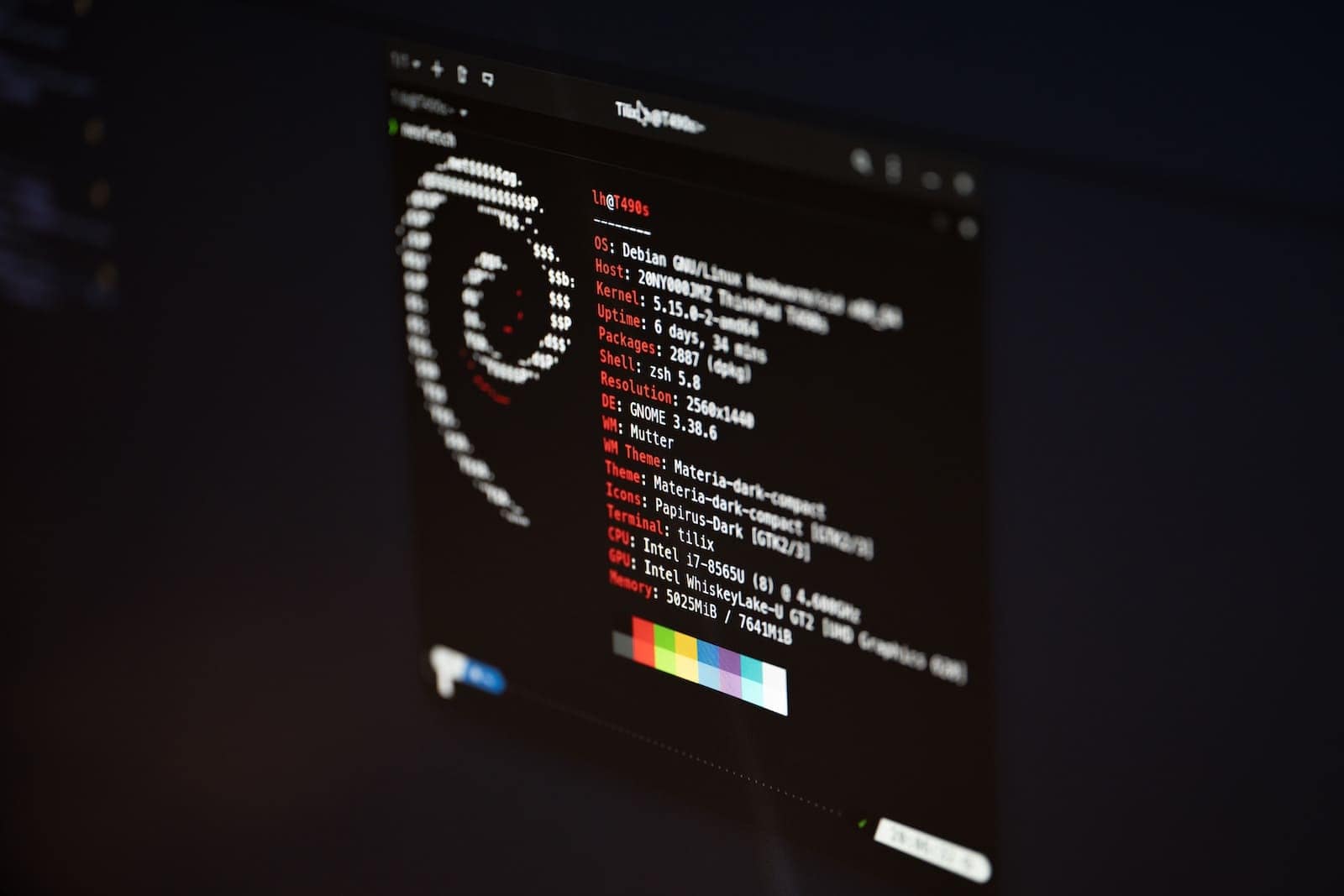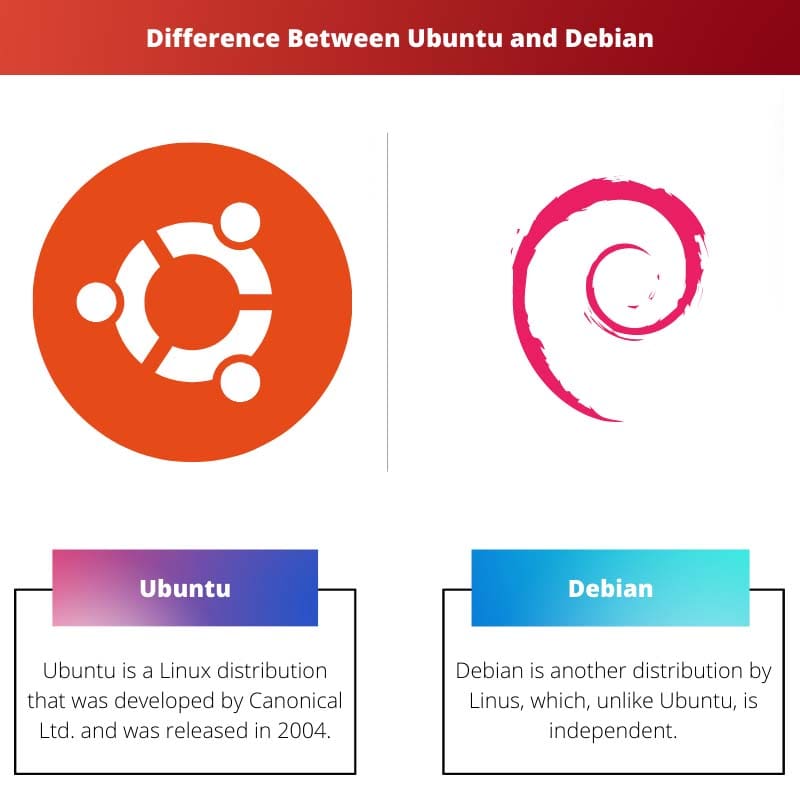Distributions in Linux are essentially operating systems with different features. They are a software collection including various tools, system managers, and a desktop environment.
There are various distributions available for users. However, the two most popular ones are Ubuntu and Debian.
There are several differences between them, which on knowing may help a customer make informed decisions.
Key Takeaways
- Ubuntu is a user-friendly Linux distribution based on Debian, with more frequent updates and a focus on ease of use.
- Debian strongly emphasizes stability and a longer release cycle, making it suitable for servers and mission-critical systems.
- Ubuntu offers commercial support and additional proprietary software, while Debian is strictly community-driven and adheres to free software principles.
Ubuntu vs Debian
Ubuntu is a Linux-based operating system based on Debian, uses APT for package management, and is free and open-source. Debian is a free and open-source operating system that is composed entirely of free software and is known for its stability, security, and flexibility.

Ubuntu is a distribution that uses the architecture and infrastructure of Debian. It shares a large number of packages and libraries with the latter.
They even have a similar APT packaging system. However, there are a few different features that Debian has to offer.
One of them is that Ubuntu has two categories for its releases: LTS and regular.
Meanwhile, Debian is an independent distribution that is not based on any other operating system. Unlike Ubuntu, it has three releases: Stable, Testing, and Unstable.
However, the distribution does not always focus on having recent or latest software versions. It largely aims at maintaining stability, due to which other factors are compromised.
Comparison Table
| Parameters of Comparison | Ubuntu | Debian |
|---|---|---|
| Launch | It was launched in 2004. | It was launched in 1993. |
| Nature | It is largely based on Debian in terms of infrastructure and features. | It is independent and not based on any other distribution. |
| Releases | It has two releases – LTS and regular. | It has three releases – Stable, Testing, and Unstable. |
| Software | It has less stability as it uses the most recent versions of software. | It has more stability as it does not always use recent software versions. |
| Platforms | It is supported on platforms including ARM and 64-bit x86. | It is supported on a larger number of platforms, which is why it is labelled as a ‘universal operating system’. |
| Installation | The installation process for Ubuntu is faster and way easier. | The installation process for Debian is confusing. |
| PPA | It has personal package archives. | It does not personal package archives. |
What is Ubuntu?
Ubuntu is a Linux distribution developed by Canonical Ltd. and released in 2004. It consists of various free and open-source software.
However, its infrastructure and design are largely based on that of Debian. Many packages and libraries built into Ubuntu are similar to Debian. However, there are other features as well that Debian doesn’t offer.
There are two kinds of releases on the Ubuntu distribution. These include regular and LTS (Long Term Support).
Regular releases are supported only for a duration of nine months, but their advantage is that they use the most recent versions of software.
Meanwhile, as the name suggests, LTS is for long-term use. It is considered relatively stable as it does not always use the latest software versions.
A variety of platforms supports the distribution. These include x86-64, ARMhf, ARM64, s390x, and ppc64le.
Since the operating system is distributed for free on these platforms, no registration process or subscription is required. This makes the installation process quick and hassle-free.
A stand-out feature that Ubuntu offers is a built-in PPA. This refers to personal package archives that distribute pre-release software so that users can test them.
It also lets users add software only from trusted sources so that fraud and misfunctions can be minimised.

What is Debian?
Debian is another distribution by Linus, which, unlike Ubuntu, is independent. Its infrastructure and design are original and not based on any other distribution or operating system.
It was developed by The Debian Project and was launched in 1993. Since then, it has gone through numerous upgrades.
There are three kinds of releases on the Debian distribution. These include Stable, Testing, and Unstable. Stable is a category for the main releases of the operating system.
It follows the doctrine of not using the new and latest software. By dint of this, it is considered to be one of the most stable and smooth distributions out there.
As the name suggests, Testing is a category under which numerous software is released for testing.
These are unstable in nature but are released to use new features and incorporate them into other releases.
Lastly, Unstable is only used for actual testing by the company and must be avoided by users.
A limitation of Debian is that it does not offer PPA. However, the distribution is known to be stable and flexible.
This is because it operates a larger number of platforms as compared to Ubuntu. Due to this, it is labelled as the ‘Universal Operating system’.

Main Differences Between Ubuntu and Debian
- Ubuntu was launched in 2004, whereas Debian was launched in 1993.
- Ubuntu is largely based on Debian in terms of infrastructure and features, whereas Debian is independent and not based on any other distribution.
- Ubuntu has two releases – LTS and regular, whereas Debian has three releases – Stable, Testing, and Unstable.
- Ubuntu has less stability as it uses the most recent versions of software, whereas Debian has more stability as it does not always use recent software versions.
- Ubuntu is supported on platforms including ARM and 64-bit x86, whereas Debian is supported on a larger number of platforms, which is why it is labelled as a ‘universal operating system’.
- Ubuntu has a fast and easy installation process, whereas the installation process of Debian is confusing and long.
- Ubuntu has personal package archives, whereas Debian does not.

- https://ieeexplore.ieee.org/abstract/document/7335409/
- https://ieeexplore.ieee.org/abstract/document/5463350/